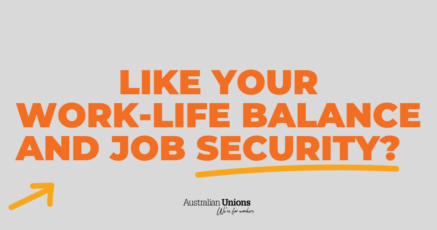You might have heard about it. Perhaps you’ve experienced it. Maybe you’ve felt it your entire working life and never realised it had a name.
Imposter syndrome isn’t just a lack of self-confidence or the occasional feeling of being out of your depth. It’s that creeping doubt that leaves you second-guessing your skills, talents, and achievements. An irrational fear of being exposed as a ‘fraud.’ Irrational because, despite objective evidence showing your competence or accomplishments, you still believe you don’t deserve the success or luck that comes your way.
Much of the time, feeling challenged and pushed to perform can be rewarding. But in the workplace, it can be harmful. Imposter syndrome often exists as a reflection of a toxic culture that encourages extreme individualism and obsession with performance or productivity instead of valuing the human behind the work.
Unsurprisingly, imposter syndrome can have a more significant impact on people from marginalised groups. Prejudices held by employers and recruiters, like the false assumption that women are less competent than men, or the misconception that people of colour are less likely to secure job interviews, can lead to the very real internalisation of these ideas for people in marginalised groups.
And when imposter syndrome is a silent fear, it can be isolating. But it’s far more common than you might think.
It can happen to anyone: you’re not alone
Imposter syndrome can make you feel like you don’t belong. Ironically, it makes you part of a pretty big club. Researchers have estimated around 70% of us will experience the signs and symptoms of imposter syndrome at least once in their life. And that feeling creeps all the way to the very highest rungs of the ladder.
But, as pervasive and harmful as it is, it’s worth asking: is imposter syndrome what we’re really experiencing? Or are we in workplaces where overconfident wealthy white men continue to hold the reins of power? Do we need to fix ourselves, or do we need to fix our workplaces?
If you’re successful at work and have faced discrimination from employers and hirers because of your gender, sexuality, class or race, the feeling you might be exposed as a fraud further down the track can be incredibly challenging to overcome.
Why your boss might prefer you feel like an imposter
If imposter syndrome is so common and destructive, why aren’t workplaces doing more to address it? The answer isn’t so rosy.
The feeling of inadequacy that goes hand-in-hand with imposter syndrome can have a very real impact on worker output. Those that experience it tend to work longer hours, reach for unattainably high standards, forgo asking for additional support or guidance, and often don’t ask for higher wages because they doubt their worth in the first place.
Worse still, dodgy bosses can sometimes intentionally foster this behaviour. Maybe they embed roles with unattainable standards from the get-go. Picture a lawyer, new to the game, sleeping under their office desk to stay on top of an unreasonably heavy workload and keep in step with their colleagues. An unsympathetic boss would hardly want to correct that behaviour, and it doesn’t leave much choice for the lawyer if that’s the industry norm.
Workers from marginalised groups – such as workers of colour, LGBTQIA+ workers, First Nations workers – suffer from an even tougher position. They already have to contend with discrimination but imposter syndrome has other sources too. Unfair expectations around behaviour (e.g. the stereotype of the well-mannered migrant) and the insecurities that come with feeling like you don’t belong combine to form the perfect recipe for anxiety and burnout.
Many women workers too can tell you how internalised self-doubt can gnaw away at your mind and make you question everything you do at work, even your success and achievements. Jokes and memes about small things like women feeling the need to put exclamation marks in emails to appear friendly actually provide us with an insight into how patriarchal norms are still embedded in our workplaces.
Of course, not all employers will treat employees poorly or ignore imposter syndrome intentionally – and those in middle management may just be conforming to toxic but well-established company culture. But for workers, it’s unsustainable, and it can lead to stress, burnout and an unhealthy work environment. Thankfully, unionised workplaces have good practices to ensure these issues are prevented in the first place.
A union workplace is an inclusive workplace
With a union, workers can elect representatives to act on their behalf and provide more of a say in how their workplace is run. Health and Safety Representatives (HSRs) support coworkers in receiving extra protection from issues that occur in the workplace.
Your employer is required by law to provide you with a safe workplace, and part of that safe workplace is making sure you have the support, training and resources you need to get the job done.
Along with a voice for collective bargaining, HSR support can include regular team check-ins and ensuring there are comprehensive mental health practices in place to help workers navigate the issues that arise from employer bias and imposter syndrome.
Union members work together to make workplaces more inclusive, supportive and prosperous for all. In a unionised workplace, no worker is left behind. You have someone in your corner who understands what you’re going through and is equipped to guide you through it.






SHARE:
Imposter syndrome at work is the elephant in the room we can’t ignore